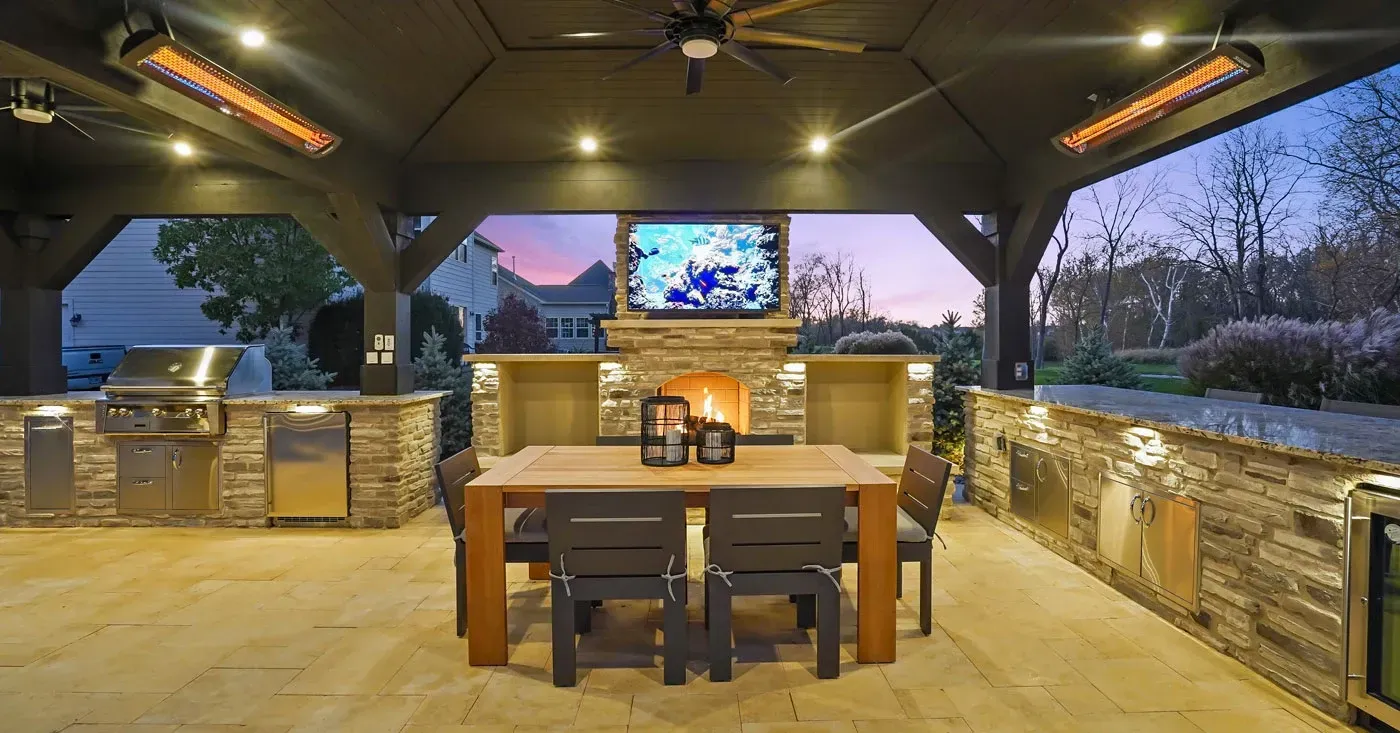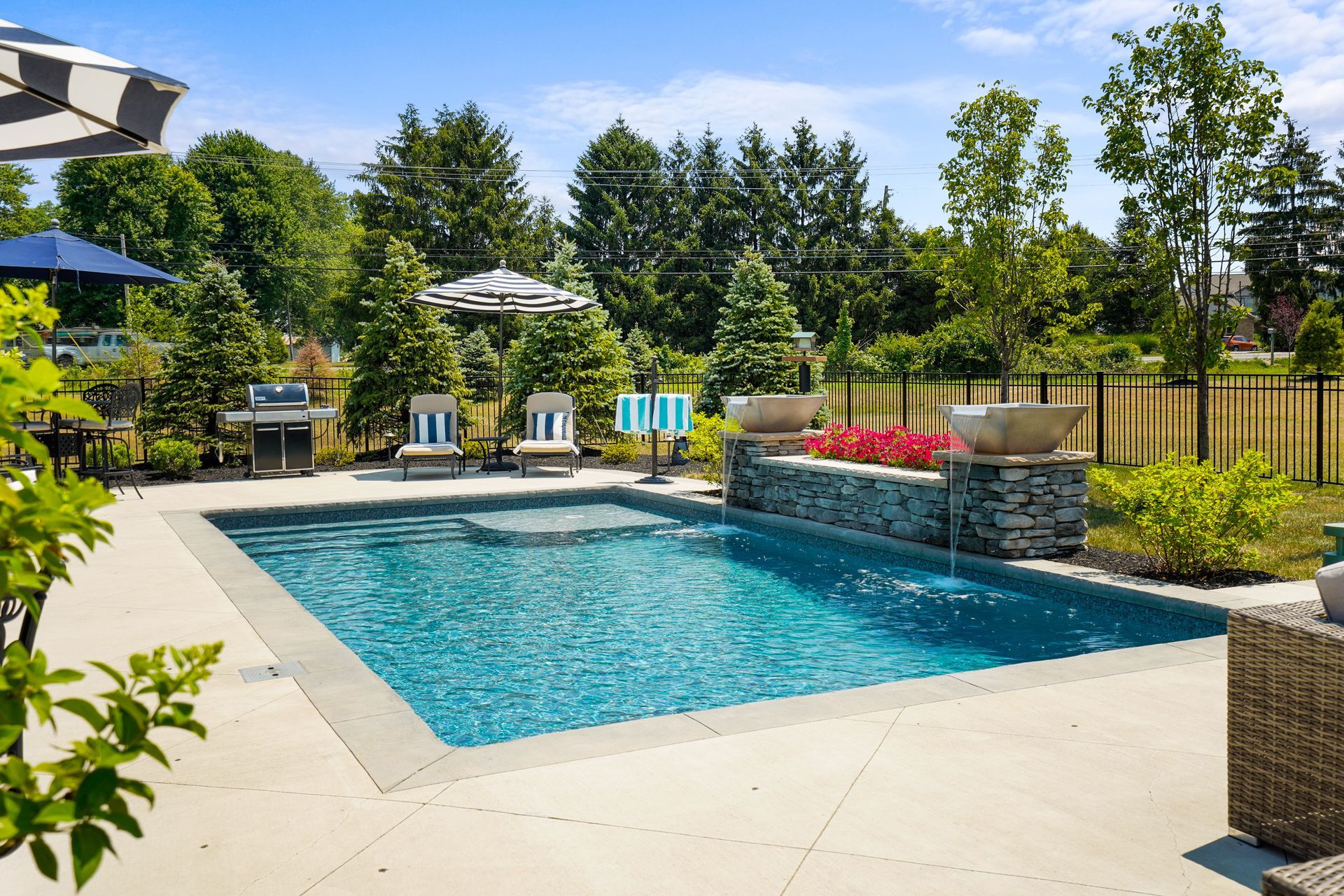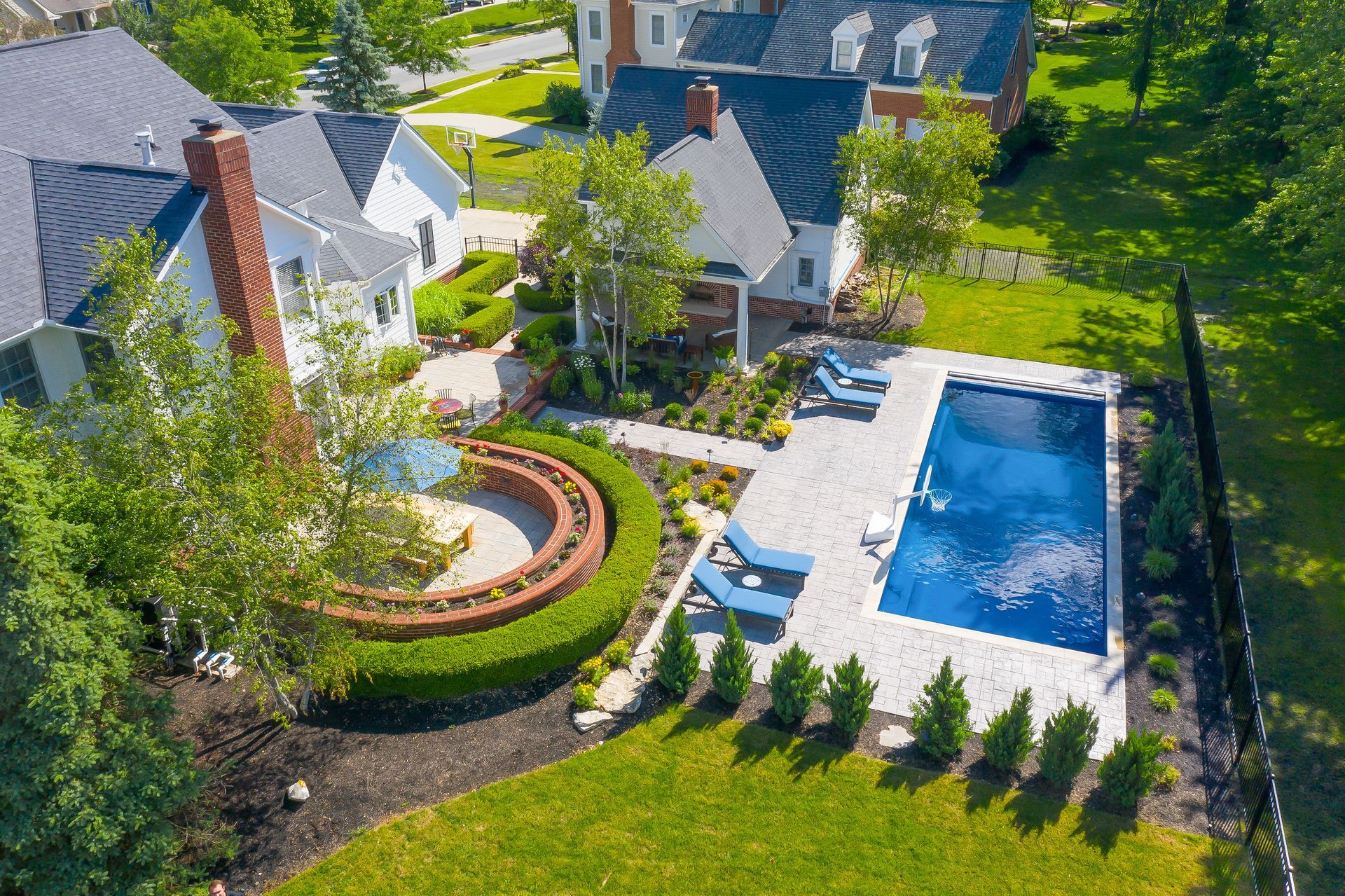How to Care for Your Outdoor Kitchen

Having an outdoor kitchen is a luxury that many of our clients simply love. During the summer, an outdoor kitchen allows you to cook a meal without heating up the entire house in the process. And during the winter, many of our clients really appreciate having the extra room to prepare holiday feasts.
One question that we’re asked quite often is how to care for the outdoor kitchen throughout the year. We think you’ll find that it’s easier than you might expect to keep this outdoor living area in good condition. Here are some tips:
Keep the Kitchen Clean
Just as you need to keep your indoor kitchen clean, you need to keep your outdoor kitchen clean. You can use the same products that you would use in the house. Remember that if you leave something sticky on your indoor counters, you’re likely to find a trail of ants sneaking in during warm weather.
This problem is amplified when the kitchen is outside, to begin with! For this reason, as well as for reasons having to do with good hygiene and food safety, it’s important to keep up with the same level of cleanliness outdoors as you do indoors.
Winterize Your Water Sources
During the spring, summer, and fall months, this is not an issue, but during the winter, you will need to be careful about not letting your pipes freeze. Be sure that your pipes are properly winterized. During very cold weather, turn off the water source to the outdoor kitchen and drain the water out. If you decide to use the kitchen during the winter months, simply turn on the water, then drain and winterize again when you’re done.
Bring in Your Chemicals
Again, this is not typically an issue during the warmer months, but if the temperature will dip below freezing, you’ll want to bring in any chemicals and cleansers that you normally store in your outdoor kitchen. In general, you can use the kitchen during the winter months, but you do need to be mindful of what you’re storing out there, because freezing can cause chemical containers to burst and leak, creating a potentially hazardous situation for children and pets, not to mention waste.
If you are interested in having an outdoor kitchen installed on your patio or other outdoor living area, please give us a call to schedule a free consultation. We’d love to go over your options with you, so that you can enjoy cooking outdoors in your very own custom outdoor cooking space.
OMNI LEARNING CENTER
RECENT POSTS



